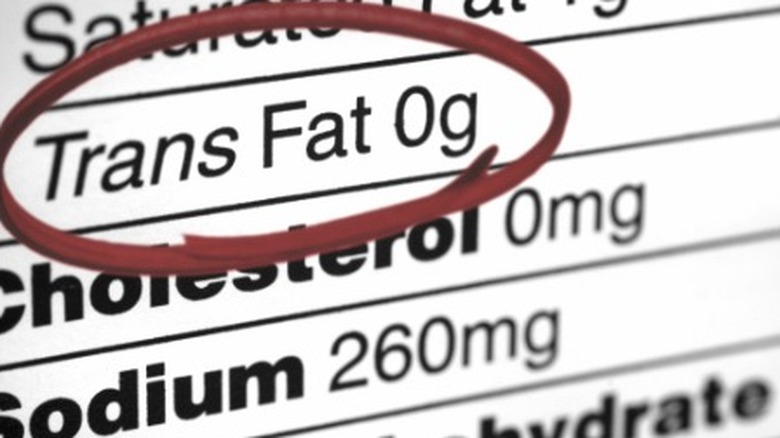Where Did Trans Fats Come From?
The late 19th century was filled with well-intentioned food innovations — we'll just leave it at that. While this was a time when food preservation processes like canning and pasteurizing were invented (which have proved to be a betterment for humanity), this was also a time when nutrition research wasn't nearly as advanced as it is today, with some effects of the industrialization of the food industry silently wreaking havoc on human health. One such detriment was the implementation of trans fats within ultra-processed food products.
Trans fats were discovered as a way to prevent or slow down the occurrence of rancidity within foods that naturally contain fat, thus prolonging their freshness and flavor while also improving their consistency and texture. As a bonus, the use of trans fats in some foods even lowered their prices. Sounds like a revolutionary invention right? At the time, yes. It was definitely thought of as such until a century later when trans fats were proven to be the worst type of fat to consume for one's health because of the increased risk of heart disease. Unfortunately, by this time almost 100% of ultra-processed food products contained trans fats. Today, the damage that's been done by trans fats to human health and the food industry in general is still trying to be reversed. And while there are plenty of foods that have been falsely accused of being unhealthy, trans fat really does deserve the attention.
How it started and how it's going
In light of the research done on the health effects of trans fats, the food industry needs to revert back to the types of fats that were used before trans fats came along. Prior to the take over of trans fats, the type of fats used in food products and everyday cooking were primarily animal fats like butter, lard, and beef tallow (aka saturated fats). While trans fats were emerging, saturated fats were being publicized as the fat to avoid for cardiovascular health. Naturally, consumers started swapping animal fats for fats created from vegetable oil, like the once-beloved margarine. Trans fats could also withstand repeated heating, making them an economical choice for deep-frying. The current consensus is actually the reverse — any amount of trans fats are harmful toward one's health, while saturated fats in moderate amounts are proven to benefit heart health within a balanced diet.
Since the 1990s, there has been a huge push to educate consumers on the detrimental effects of trans fats which culminated in the national ban of trans fats by the U.S. Government in 2018. Around the same time, the World Health Organization started a push to ban trans fat globally. It's worth mentioning that, even if nutrition labels state 0 grams of trans fat, it's legal for a product to contain trace amounts of trans fat while still declaring it to have none.

